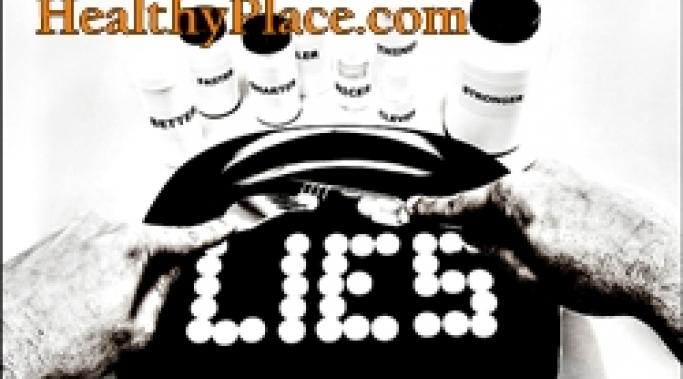I recently received some bad news. My maternal grandmother's husband, who stepped in as a grandfather after mine died, was diagnosed with the early stages of Alzheimer's disease. This brings back bad memories for me, not only because my paternal grandfather had it and in his last days didn't know me, but also because when my maternal grandfather was diagnosed with cancer, my mother took on extra responsibilities. The problem is, she took the stress from this out on her kids and became emotionally abusive. I believe this is why I developed borderline personality disorder (BPD). So how am I to handle this?
Borderline Symptoms
Recent events have left us, as a nation, shocked and disturbed. For me, the explosion in West, Texas hits closer to home than the bombing of the Boston Marathon since I used to live in nearby Waco. And the floods in the Midwest are literally a few miles from my apartment. Sometimes our emotions and mental health symptoms can get triggered by national tragedy. So how do we emotionally handle a disaster?
Did you know that Miss Piggy can teach us a lot about anger? For the lesson, watch this video. Note Miss Piggy's hysterical but understandable overreactions, and ask what you can learn from them.
I once read a book by a homeless man, and he talked about the first thing his guru said to him: "Everything that happens to you is for your own good."
As a rape survivor, I argue with this, but it stood out to me. My version would be "Everything that happens to you is to teach you something." I recently learned a major fact about my BPD diagnosis from a woman at the bus stop.
As I write this, my sobriety is shot to the Nether Regions. I'm once again fighting my battle against alcohol relapse and cravings. Which got me thinking, what do I wish people understood about addiction?
I recently re-read parts of my journal that I kept while I was in the state hospital system. One recurring theme is the assumption that I was lying. This often impacted my treatment, and often impacts the treatment of other people with borderline personality disorder (BPD).
My outside HealthyPlace.com life sometimes requires that I read medical studies. Recently, I stumbled across a University of Mississippi Medical Center study on substance use and borderline personality disorder. Basically, the study asked if substance use disorders make borderline personality disorder (BPD) symptoms worse?
Self-injury is one of the major symptoms of borderline personality disorder (BPD). It is so characteristic of the disorder that some mental health professionals will diagnose a patient of having BPD even if no other symptoms are present. But many people are still in the dark about self-injury: why people self-injure, what self-injury accomplishes, and how to approach someone who self-injures.
Suicide is one of the most stigmatized topics of a highly stigmatized subject. Quite frankly, we don't talk about it even if we do talk about severe mental illness. This is especially unfortunate for people with borderline personality disorder (BPD), as suicide is sadly common. But the fact that this is National Suicide Prevention Week is a way to start the conversation.
Co-morbidity is a fancy way of saying "two or more co-occuring diagnoses." Many people with borderline personality disorder also have depression. In this video, More Than Borderline's, Becky Oberg, talks about depression symptoms and causes of depression.








